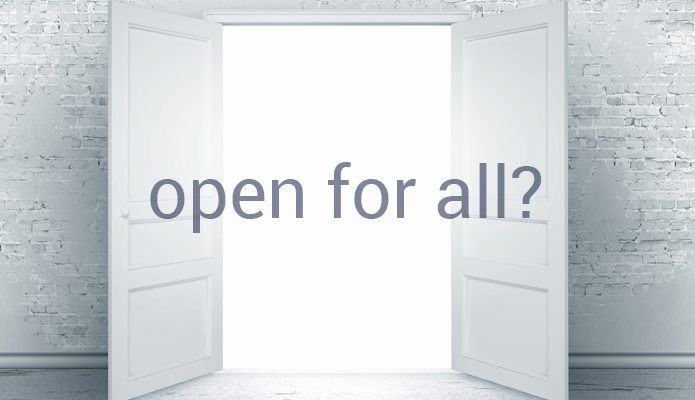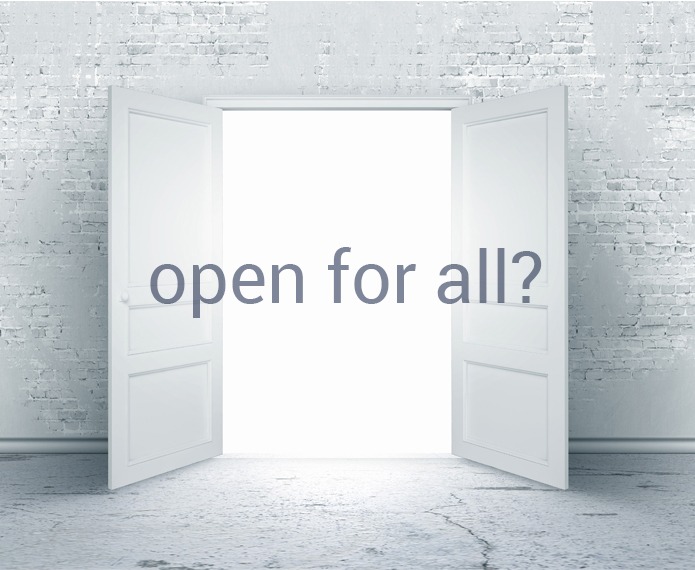The thinking of Comrade F. Dobler from the early 20th century remains relevant and even prescient: those who need open access to information may be those who are fundamentally excluded from public libraries.

Class
Public libraries must be transformed from provider-led agencies of social control (their historical role) into community-led agencies of social change (which can identify, prioritize and meet community needs).
According to the National Reading Campaign, there are 360 million visits made to Canadian libraries and 590 million items are borrowed each year. We need to go beyond these headline figures to establish who is actually making most use of public libraries and, more importantly, who is not using public libraries at all.
The latest Canadian Urban Libraries Council (CULC) statistics indicate that 46% of Canadians are library users to a greater or lesser extent. Of these library users, 21% are Active Users – those with a library card who use the full range of services; 25% are Passive Users – those who visit the library on an occasional basis or use it for a specific purpose; 54% are Non Users – those who do not use the library at all.
There has been significant research into library users – the people who know us, like us and use us on a regular basis. They often look like us and share our interests, tastes and values. It is relatively easy to find out what they need (or want) because they are a captive and co-operative audience. They are happy and willing to tell us what they want (or need) so that we can make life even better for them. We spend a significant amount of our resources and capacity (probably 80%) on meeting the needs of our Active Users who sit at the centre of our dominant paradigm. We know plenty about our Active Users and quite a lot about our Passive Users.
The typical socio-economic profile of a library user is white, female, over 50 and middle class (educated). We call this very narrow homogenous demographic the “dominant reader.”
We know little or nothing about our Non Users, and yet they make up the largest percentage of our local communities.
Very little research has been done into who Non Users are and, critically, why they are Non Users. Anecdotal evidence suggests that many Non Users have no history of library use, often for generations. They were not taken to the library as children. They do not take their children to the library. They perceive the library as “not for them.” These Non Users are more likely to be living in deprived areas, male, under 30, and have lower levels of qualifications, happiness and satisfaction within their lives.
There is a social class dynamic to library use and non use.
The middle class make up 37% of the population and 43% of library users; the working class make up 62% of the population and 33% of library users. There is a similar social class differential in reading habits. 62% of the middle class read daily or weekly, compared with 42% of the working class. More than a quarter of the working class (27%) never read, compared to just 13% of the middle class. There is also class dimension to Internet access. 88.3% of people in the top income quartile have internet access, compared to just 26.4% of those in the bottom quartile. But in public libraries this relationship is reversed: 16.3% of library internet users are in the top income quartile, compared to 26.8% of those in the bottom quartile.
This is evidence of how libraries can close both the information and class divide.
I was part of the research team which produced Open to All? The Public Library and Social Exclusion (2000) which inspired the Working Together Project in Canada (2004-08). The question mark in Open to All? was the most important part of the title. We like to think that public libraries are open to everyone – we open our doors and people can choose to use us, or not. Open to All? challenged this assumption and found a much more complex picture.
One of our most significant discoveries was that those who use public libraries the most often have the least needs; and those who use public libraries the least often have the greatest needs.
For this paradigm to be reversed the public library must be transformed into a needs-based and community-led service. A needs-based library is predicated on the assumption that everyone has needs and each person has different needs. The needs-based philosophy is “from each according to their ability”, in terms of staff strengths (talents, skills and knowledge), “and to each according to their needs”, in terms of identifying, prioritizing and meeting community needs.
In order to identify needs, libraries must go much further than passive consultation and actively engage and involve all sections of the local community in the planning, design, delivery and evaluation of library services. The community is an expert in its needs. The library worker becomes an enabler, facilitator and co-producer of library services with the community. This requires a number of fundamental shifts in attitudes, behaviours and values.
The library worker is transformed from “the sage on the stage” into “the guide on the side.” The library is transformed from a grocery store where people shop for pre-packaged information and entertainment into a kitchen where people can find the ingredients to create their own knowledge. Library users are transformed from transactional customers into members and stakeholders. Library spaces are transformed into democratic public spaces which are truly open to all , the living rooms of the community.
As David Lankes has concluded: “Bad libraries build collections, good libraries build services and great libraries build communities.”
John Pateman is the CEO / Chief Librarian of the Thunder Bay Public Library. The Open for All? column explores the nature of libraries and their commitment to openness.
This Post Has 3 Comments
Comments are closed.

[…] John Pateman, Thunder Bay Public Library CEO, is the author of the Open for All? column in the OLA Open Shelf online magazine. The column explores the nature of libraries and their commitment to openness. His most recent column is called Class. […]
[…] Below are some excerpts from a interesting article from John Pateman on Social Class and libraries – see http://www.olasuperconference.ca/open-shelf/class/ […]
[…] Public libraries must be transformed from provider-led agencies of social control (their historical role) into community-led agencies of social change (whi… […]